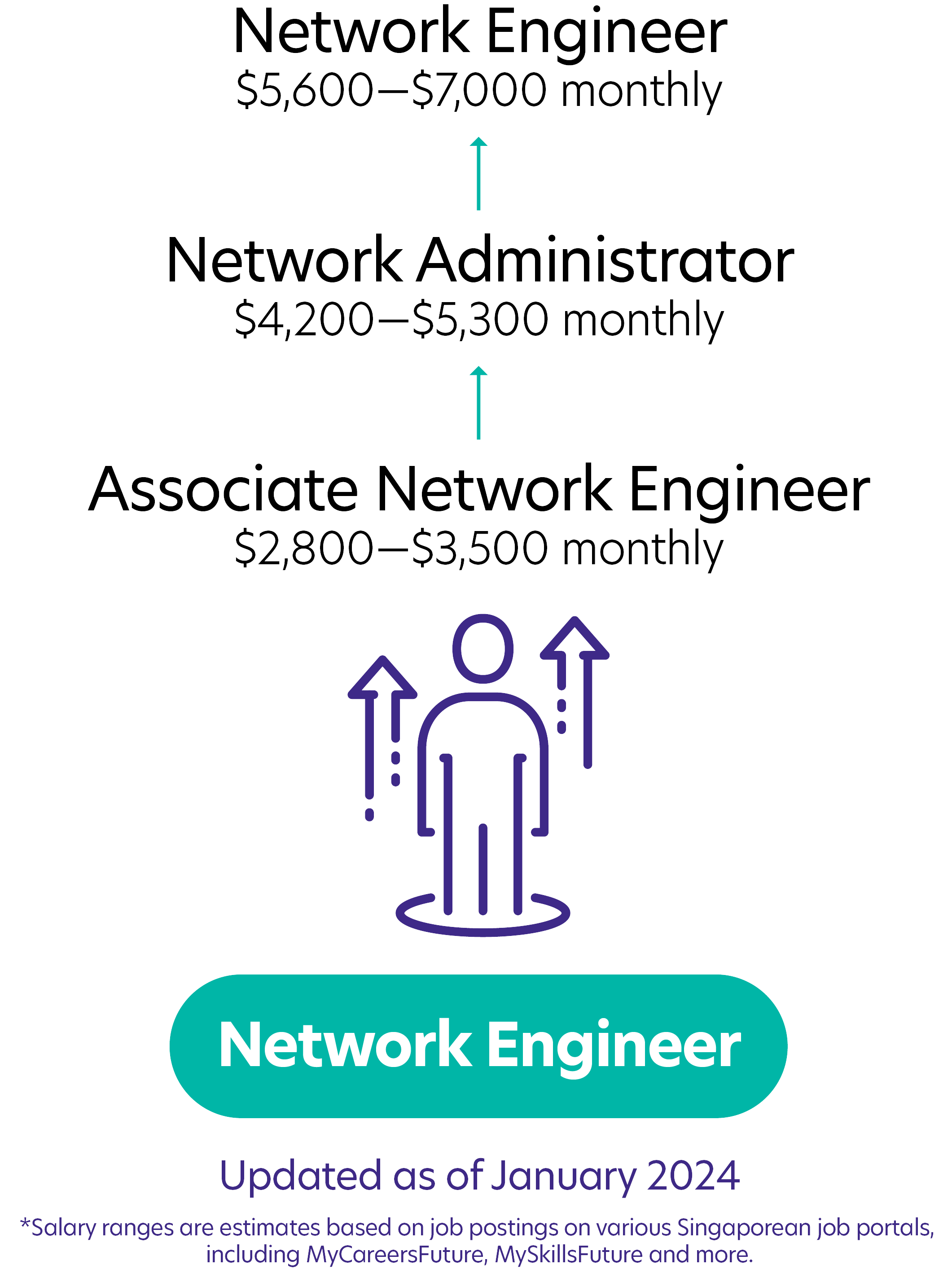
Network Engineers configure and manage networks to ensure reliability and minimal interruption for users.
Network Engineer Job Description
- Evaluate user requirements by analysing communication needs, software usage, and security concerns and address these by suggesting network protocol services.
- Install switches and routers and configure them to facilitate efficient communication between devices through wireless access to the network.
- Conduct threat assessment and install firewall appliances for attack guards and intrusion detection.
- Monitor performance metrics to identify bottlenecks and implement strategies to optimise network efficiency for Quality of Service (QoS), to meet users' requirements.
- Debug network issues and implement solutions to restore network functionality and maintain user productivity.
Note
Network Engineers also provide customer service support and deal with hardware products. Unsurprisingly, your relatives may ask for your help to fix their home Wi-Fi!
What you should know about Network Engineer jobs in Singapore
Nature of Work
As you will be working with many vendors and customers, strong communication and patience are crucial for tackling challenges.Key advice
Stay ahead in network security and cloud solutions. Your expertise keeps Singapore connected and secure.-
Entry RequirementsEntry Requirements
A bachelor's degree in Computer Science or Computer Engineering is preferred.
-
Possible PathwayPossible Pathway

Skills you need to pursue a Network Engineer career in Singapore
Cyber and Data Breach Incident Management
Handling and resolving incidents related to cyber threats and data breaches.Infrastructure Design
Designing and planning network infrastructures, ensuring organisational needs and performance standards.Network Security
Implementing and maintaining security measures to protect systems from cyber threats and unauthorised access.Business Innovation
Applying innovative thinking to network solutions, enhancing business processes and technological efficiency.Stakeholder Management
Communicating and collaborating with stakeholders to deliver solutions that meet organisational goals.Problem-Solving
Ability to identify, analyse, and solve complex network-related problems efficiently and creatively.Self Management
Managing one's own time and resources effectively, staying motivated and focused on goals.Sense-Making
Ability to interpret and make sense of complex data, transforming it into actionable insights.Service Orientation
Providing high-quality service, focusing on understanding and meeting the needs of network users and clients.Explore Other Programmes
Browse AllYou have bookmarked your first item!
Find it in My Discoveries with insights on your interests!








